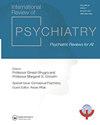体验式学习空间和学生福利:一项对英国三所研究型大学学生的混合方法研究
IF 3.7
4区 医学
Q1 PSYCHIATRY
引用次数: 0
摘要
有明确的证据表明,大学生正经历着严重的心理健康问题,而在COVID-19大流行高峰期,大学校园暂时关闭进一步加剧了这一问题。在此背景下,我们的研究——学生福利和体验式学习空间(SWELS)——探讨了体验式学习空间在支持学生福利方面的作用。我们采用了一种混合方法,包括在线调查和对来自三所研究密集型英国大学的学生的访谈。调查结果显示,与英国国家统计局(ONS)幸福感调查问卷中16 - 25岁的全国平均水平相比,抽样学生的生活满意度、幸福感、自我价值感明显较低,焦虑程度较高。定性结果进一步证实,学生们认为他们的幸福感受到大学经历和新冠疫情的影响。然而,研究结果也表明,体验式学习空间(如博物馆、收藏品、图书馆和花园)在支持学生心理健康方面具有强大的潜力。因此,研究表明,多样化的模块内容和认真考虑物理和数字学习空间可以对学生产生积极的影响。简而言之,认识到物理学习环境并将关注健康纳入其内容的课程可能有助于提高学生的幸福感。本文章由计算机程序翻译,如有差异,请以英文原文为准。
Experiential learning spaces and student wellbeing: a mixed-methods study of students at three research intensive UK universities
There is clear evidence that university students are experiencing significant mental health difficulties, further exacerbated by the temporary closure of university campuses during the height of the COVID-19 pandemic. Against this backdrop, our study – Student Wellbeing and Experiential Learning Spaces (SWELS) – explored the role of experiential learning spaces in supporting student wellbeing. We adopted a mixed-methods approach, consisting of an online survey and interviews with students from three research intensive UK Universities. The survey results revealed that compared to the national average of 16–25-year-olds from the UK Office for National Statistics’ (ONS) wellbeing questionnaire, the sampled students exhibited significantly lower levels of life satisfaction, happiness, perceived worthwhileness and higher levels of anxiety. The qualitative results further confirmed that students perceived their wellbeing to be affected by their university experience and the COVID pandemic. However, the results also suggest that experiential learning spaces (such as museums, collections, libraries, and gardens) hold strong potential to support student mental health. Accordingly, the study indicates that diversifying module content and conscientiously considering both physical and digital learning spaces can positively impact students. In short, curricula that are cognisant of the physical learning environment and embed a focus on wellbeing into their content might help to bolster student wellbeing.
求助全文
通过发布文献求助,成功后即可免费获取论文全文。
去求助
来源期刊

International Review of Psychiatry
PSYCHIATRY-
CiteScore
5.10
自引率
0.00%
发文量
85
期刊介绍:
The International Review of Psychiatry is the premier review journal in the field with a truly international authorship and readership. Each bimonthly issue is dedicated to a specific theme relevant to psychiatry, edited by recognized experts on the topic, who are selected by the Editors and the Editorial Board. Each issue provides in-depth, scholarly reviews of the topic in focus. The Journal reaches a broad international readership including clinicians, academics, educators, and researchers who wish to remain up-to-date with recent and rapid developments in various fields of psychiatry. It aims to be of value to trainees by choosing topics of relevance to career development, which are also suitable for clinicians for continuing professional development.
 求助内容:
求助内容: 应助结果提醒方式:
应助结果提醒方式:


